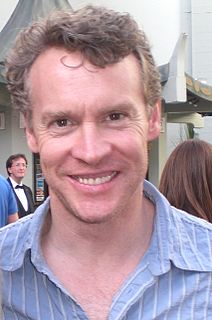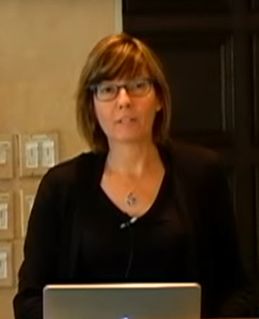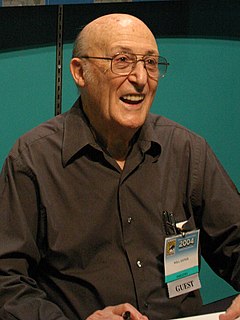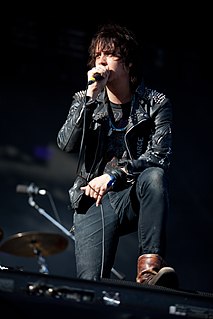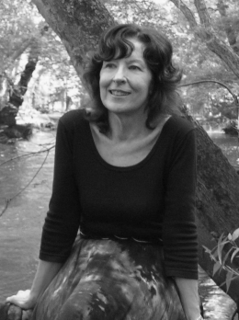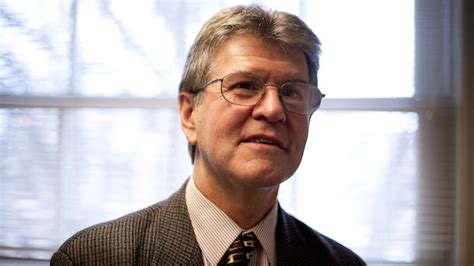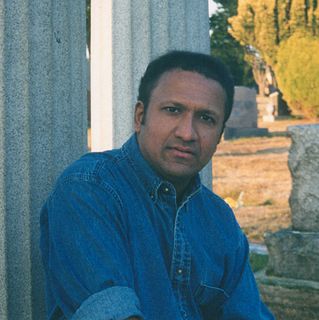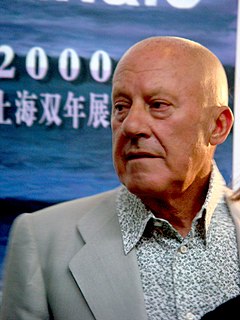Top 372 Medieval Quotes & Sayings - Page 5
Explore popular Medieval quotes.
Last updated on April 19, 2025.
remember a feeling of excitement, of sudden inspiration, when I was visiting Giovanni Boccaccio's home in the walled village of Certaldo, outside of Florence. (Boccaccio was the medieval author of The Decameron.) It was as though I had met my muse! After this trip, I read The Decameron and began writing the Alchemy Series in earnest.
In the medieval tradition, Beksinski seems to believe art to be a forewarning about the fragility of the flesh– whatever pleasures we know are doomed to perish– thus, his paintings manage to evoke at once the process of decay and the ongoing struggle for life. They hold within them a secret poetry, stained with blood and rust.
Comics, which are really best described as an arrangement of images in a sequence that tell a story - an idea - is a very old form of graphic communication. It began with the hieroglyphics in Egypt, it first appeared in a recognizable form in the Medieval times as copper plates produced by the Catholic church to tell morality stories.
The museums of medieval Europe, from Holland to Tuscany, are crammed with instruments and devices upon which the holy men labored devoutly, in order to see how long they could keep someone alive while being roasted. It is not needful to go into further details, but there were also religious books of instruction in this art, and guides for the detection of heresy by pain.
In writing my historical novels, I have to rely upon my imagination to a great extent. I think of it as 'filling in the blanks.' Medieval chroniclers could be callously indifferent to the needs of future novelists. But I think there is a great difference between filling in the blanks and distorting known facts.
We have seen many other not just writers and intellectuals, but including writers and intellectuals in the Muslim world being attacked and murdered by Islamic fanatics, accused of exactly the same things that I was, these medieval crimes of apostasy And heresy, but then broadening from that into a broader attack on all of us.
[Osip] Mandelstam, who wasn't a political thinker, loved the idea of the city-state. One of the emblems in his poetry of the politics he imagined, over and against the universalizing politics of [Carl] Marx, was the medieval city of Novgorod, which had in its center a public well where the water was free to everyone. That became for him a figure of justice.
Belief in the traditional sense, or certitude, or dogma, amounts to the grandiose delusion, "My current model" -- or grid, or map, or reality-tunnel -- "contains the whole universe and will never need to be revised." In terms of the history of science and knowledge in general, this appears absurd and arrogant to me, and I am perpetually astonished that so many people still manage to live with such a medieval attitude.
The evolution of government from its medieval, Mafia-like character to that embodying modern legal institutions and instruments is a major part of the history of freedom. It is a part that tends to be obscured or ignored because of the myopic vision of many economists, who persist in modeling government as nothing more than a gigantic form of theft and income redistribution.
Science, incidentally, not only ignores the question of indwelling 'essences' by looking instead at measurable relationships, but science also does not agree that knowledge is obtained through Rothbard's Medieval 'investigation by a reason,' i.e., by inventing definitions and then deducing what your definitions implicitly assumed.
Should an anthropologist or a sociologist be looking for a bizarre society to study, I would suggest he come to Ulster. It is one of Europe's oddest countries. Here, in the middle of the twentieth century, with modern technology transforming everybody's lives, you find a medieval mentality that is being dragged painfully into the eighteenth century by some forward-looking people.
Divorce is simply modern society's version of medieval torture. Except it lasts longer and leaves deeper scars. A divorce releases the most primitive emotions; the ugliest, raw feelings. Emotionally wounded people do their best to inflict pain upon the other party, but rather than using claws they use divorce lawyers.
If the men of the Middle Ages... lived in filth and discomfort, it was not for any lack of ability to change their mode of life; it was because they chose to live this way, because filth and discomfort fitted in with their principles and prejudices, political, moral, and religious.... It was in the power of medieval... craftsmen to create armchairs and sofas that might have rivaled in comfort those of today
We live in this era that has benefited from the Industrial Revolution, and we live with a kind of luxury and plenty that even all but the poorest of Americans live with a kind of sensuousness that was unimagined by medieval kings. But in order to get to this point, a lot of people had to suffer in really terrible ways.
I was born on September 30, 1939, in Rosheim, a small medieval city of Alsace in France. My father, Pierre Lehn, then a baker, was very interested in music, played the piano and the organ, and became, later, having given up the bakery, the organist of the city. My mother Marie kept the house and the shop.
Music endures and ages far better than books. Books, made of words, are unavoidably attached to ideas, events, conflict, and history, but music has the power to transcend time. At least for a time. Palestrina sounds as fresh today as he did in 1555, but Dante, only three centuries older, already smells of the archaic, the medieval, the catacombs.
I was born in England and went to school there. That's when I discovered my undying passion for history - not just for the Middle Ages, but all periods of history. My favorites are medieval, Elizabethan, and Georgian; however, I've written stories set in periods as early as ancient Rome, right up to the Victorian era.
I think what inspires me is in a constant state of flux...it's easier to stick to photographers and perhaps cinematographers, though the great medieval, Mannerist, and Baroque painters of Italian, Spanish, Flemish, and German origin are a constant source of inspiration, along with select modernists like Dali.
If we study learning as a data science, we can reverse engineer the human brain and tailor learning techniques to maximize the chances of student success. This is the biggest revolution that could happen in education, turning it into a data-driven science, and not such a medieval set of rumors professors tend to carry on.
In most cases, obviously, soldiers fought because a government drafted them and gave them a rifle. At every point too, we see the role of nationalistic sentiment, commercial rivalries, and simple greed. But can we ever separate out such motives from the religious? Was that not also true of the medieval crusades?
The atheist, agnostic, or secularist ... should guard against the encroachment of religion in areas where it has no place, and in particular the control of education by religious authority. The attempts to ban the teaching of evolution or other scientific theories -- a feeble echo of medieval church tyranny and hostility to learning, but an echo nonetheless are serious threats to freedom of inquiry and should be vigorously combated.
I find the niqab symbol profoundly offensive. I believe it reflects a misogynistic culture that - a treatment of women as property rather than people, which is anchored in Medieval tribal customs as opposed to any religious obligation, but I do not seek to regulate people wearing this objectionable symbol if they choose to do so.
Like medieval theologians we had a philosophy that explained everything to us in advance, and everything that did not fit could be readily identified as a fraud or a lie or an illusion... The perniciousness of the anti-Communist ideology of the Truman Doctrine arises not from any patent falsehood but from its distortion and simplification of reality, from its universalization and its elevation to the status of a revealed truth.
The medieval Islamic world, from Central Asia to the shores of the Atlantic, was a world where scholars and men of learning flourished. But because we have tended to see Islam as the enemy of the West, as an alien culture, society, and system of belief, we have tended to ignore or erase its great relevance to our own history.
A glance at the history of European poetry is enough to inform us that rhyme itself is not indispensable. Latin poetry in the classical age had no use for it, and the kind of Latin poetry that does rhyme - as for instance the medieval 'Carmina Burana' - tends to be somewhat crude stuff in comparison with the classical verse that doesn't.
The idea that it is funny to see wild animals coerced into acting like clumsy humans, or thrilling to see powerful beasts reduced to cringing cowards by a whip-cracking trainer, is primitive and medieval. It stems from the old idea that we are superior to other species and have the right to hold dominion over them.
Say you have cancer - you have this broad thing we call cancer; we're going to irradiate you and pump this poisonous material into you and hope more of the bad stuff dies than the good. That is going to seem so medieval when we can fix it on a genetic level, and Foundation Medicine is the first step to diagnosing it on a genetic level.
As artists and traders in medieval cities began to form organizations, they instituted tough initiation ceremonies. Journeymen in Bergen, Norway, were shoved down a chimney, thrown three times into the sea, and soundly whipped. Such rites made belonging to the guild or corporation more precious to those who were accepted, and survived.
To make sure that my blasphemy is thoroughly expressed, I hereby state my opinion that the notion of a god is a basic superstition, that there is no evidence for the existence of any god(s), that devils, demons, angels and saints are myths, that there is no life after death, heaven nor hell, that the Pope is a dangerous, bigoted, medieval dinosaur, and that the Holy Ghost is a comic-book character worthy of laughter and derision.
In the index to the six hundred odd pages of Arnold Toynbee's A Study of History, abridged version, the names of Copernicus, Galileo, Descartes and Newton do not occur yet their cosmic quest destroyed the medieval vision of an immutable social order in a walled-in universe and transformed the European landscape, society, culture, habits and general outlook, as thoroughly as if a new species had arisen on this planet.
A glance at the history of European poetry is enough to inform us that rhyme itself is not indispensable. Latin poetry in the classical age had no use for it, and the kind of Latin poetry that does rhyme - as for instance the medieval Carmina Burana - tends to be somewhat crude stuff in comparison with the classical verse that doesn't.
I think every culture - you can call it an American Ronin, a medieval knight errant, you could talk about 'Shane.' There is an archetype that I think is actually common to a lot of cultures, and even the Clint Eastwood stuff was probably as influenced by the Japanese stuff, and yet done by an Italian.
The Roman Catholic Church is an institution for whose gains the phrase "ill-gotten" might have been specially invented. And of all its money-making rip-offs, the selling of indulgences must surely rank among the greatest con tricks in history, the medieval equivalent of the Nigerian Internet scam but far more successful.
Medieval theologians used to dispute how the angels in the heaven spent their time, when not balancing on needle points and singing anthems to the Lord. I know. They slump glued to their clouds, glasses at the ready, as the Archangel Micheal (that well-known slasher) and stonewalling St Peter open against the Devils XI. It could not be Heaven, otherwise.
It [the scientific revolution] outshines everything since the rise of Christianity and reduces the Renaissance and Reformation to the rank of mere episodes, mere internal displacements, within the system of medieval Christendom. . . . It looms so large as the real origin of the modern world and of the modern mentality that our customary periodization of European history has become an anachronism and an encumbrance.
According to my mother, there pretty much wasn't anything I wouldn't eat as a child. Not just try, but eat. I was even inclined to dig into stuff about which she expressed open disgust - lobster and other shellfish, and cheap Chinese food with pepper so hot it made your gums feel like a medieval dentist had been at them.
When we have a world where you have ISIS chopping off heads, where you have - and, frankly, drowning people in steel cages, where you have wars and horrible, horrible sights all over, where you have so many bad things happening, this is like medieval times. We haven’t seen anything like this, the carnage all over the world.
There were a hundred booksellers in the old round city founded by the eighth-century caliph al-Mansur. The café and wine-drinking culture of Baghdad has been famous for centuries; there was a whole school of Iraqi poets who wrote poems about the wine bars of medieval Baghdad - the khamriyaat, or wine songs, that I quote in the book.
I was born and spent my first five years in Chester, an ancient city that retains some of its Roman walls and fortifications and contains a great medieval cathedral, as well as Tudor, Stuart and early 19th century architecture. Visiting these things was free, and my parents - who had little money - made the most of this.
According to the Tax Foundation, taxes now consume more than 38% of the average family's budget. That is more than is spent on food, clothing, housing, and transportation combined. Compare this to the plight of medieval serfs. They only had to give the lord of the manor one-third of their output - and they were considered slaves. So what does that make us?
We live in a world, a medieval type of world, where someone can accuse you - through gossip and hearsay, and all of a sudden you're supposed to respond to specific charges from people you don't know, are not aware of who these people are, and you're supposed to respond to their specific allegations?
